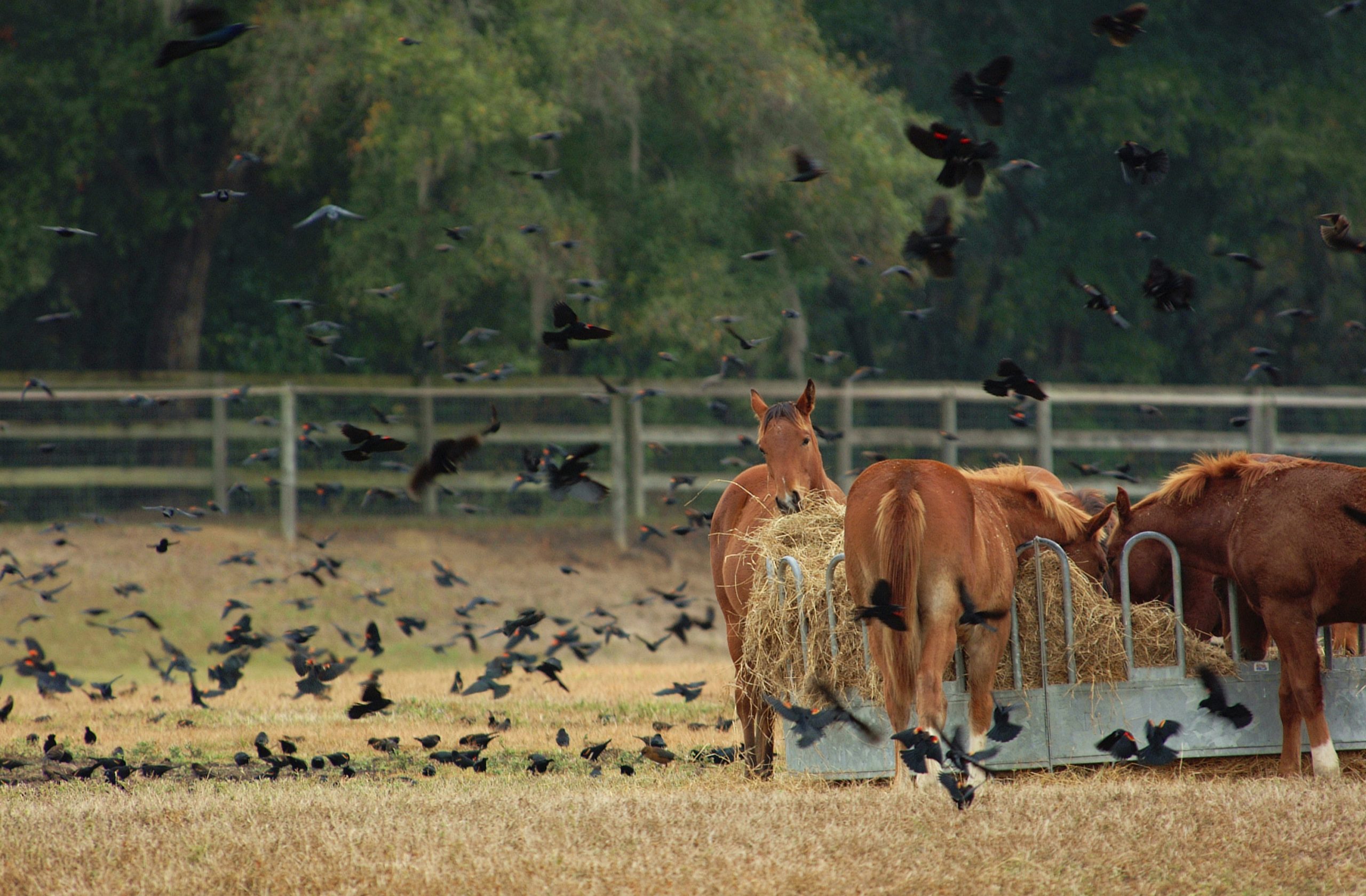
Hey there, young horse enthusiasts! Today, we will learn about something super important for our environment and horses—how to manage horse manure properly. It might sound a little yucky, but it’s cool because it helps keep Florida’s beautiful land and water clean. So, let’s dive in!
What is Horse Manure?
Horse manure is the waste that is after a horse eats its food. It’s the stuff that comes out the other end! Manure isn’t just waste; it contains nutrients (Nitrogen, Phosphorus, Potassium, etc.) that can help plants grow. But if we don’t handle those nutrients correctly, it can cause a degradation of our clean and dwindling supply of water.
Why Do We Need to Manage Horse Manure?
In Florida, we have many horses, which means lots of manure! Manure could wash into rivers, lakes, and other bodies of water when it rains if not appropriately managed. This can cause eutrophication. What is eutrophication? A condition in an aquatic ecosystem where high nutrient concentrations stimulate algae blooms. Algae blooms create a barrier for the sunshine to reach marine life under the water’s surface. This leads to the demise of aquatic life and poor water quality. That’s why Florida has special rules called “Best Management Practices,” or BMPs, to ensure manure is handled in a way that protects our environment.
What Are Best Management Practices (BMPs)?
BMPs are like a guidebook for horse owners, showing them the best ways to deal with manure. Here are some of the essential BMPs that help keep Florida clean and green:
- Storing Manure Properly: Horse owners are encouraged to store it in a covered area instead of leaving manure in open fields where it can easily get washed away. This keeps rain from washing it into nearby water sources.
- Composting: Composting can turn manure into something useful! When manure is composted, it breaks down into a rich material that can be used as fertilizer for gardens and farms. Composting also reduces the smell and makes the manure safer to use.
- Spreading Manure on Fields: If horse owners want to use manure as fertilizer, they should spread it evenly over fields and not too close to water sources. This helps plants grow without risking water pollution.
- Keeping Horses Away from Water Bodies: Sometimes horses like to hang out near rivers or ponds, but too much manure can end up in the water if they do. BMPs suggest fencing off these areas so horses stay safe from water bodies.
- Picking Up Manure Regularly: Picking up manure from pastures and paddocks regularly helps keep the area clean and reduces the chance of pollution.
Why Is This Important?
By following these BMPs, horse owners in Florida help protect our rivers, lakes, and oceans. This keeps our drinking water clean and helps all the animals and plants in these places. Plus, it’s suitable for the horses, too, because it keeps their living areas clean and healthy.

How Can You Help?
Even if you don’t own a horse, you can help spread the word about how important it is to manage manure properly. You can also learn how to protect the environment and maybe even get involved in local projects that help keep Florida clean.
So remember, taking care of horse manure is about more than just cleaning up—it’s about protecting our planet and making sure Florida stays a beautiful place to live for everyone!
And there you have it! Now you know all about Florida’s horse manure best management practices. Keep learning and helping; you’ll be a champion for the environment in no time!
Further Reading:
Manure Management 101 – https://blogs.ifas.ufl.edu/marionco/2017/11/08/1187/
 0
0
